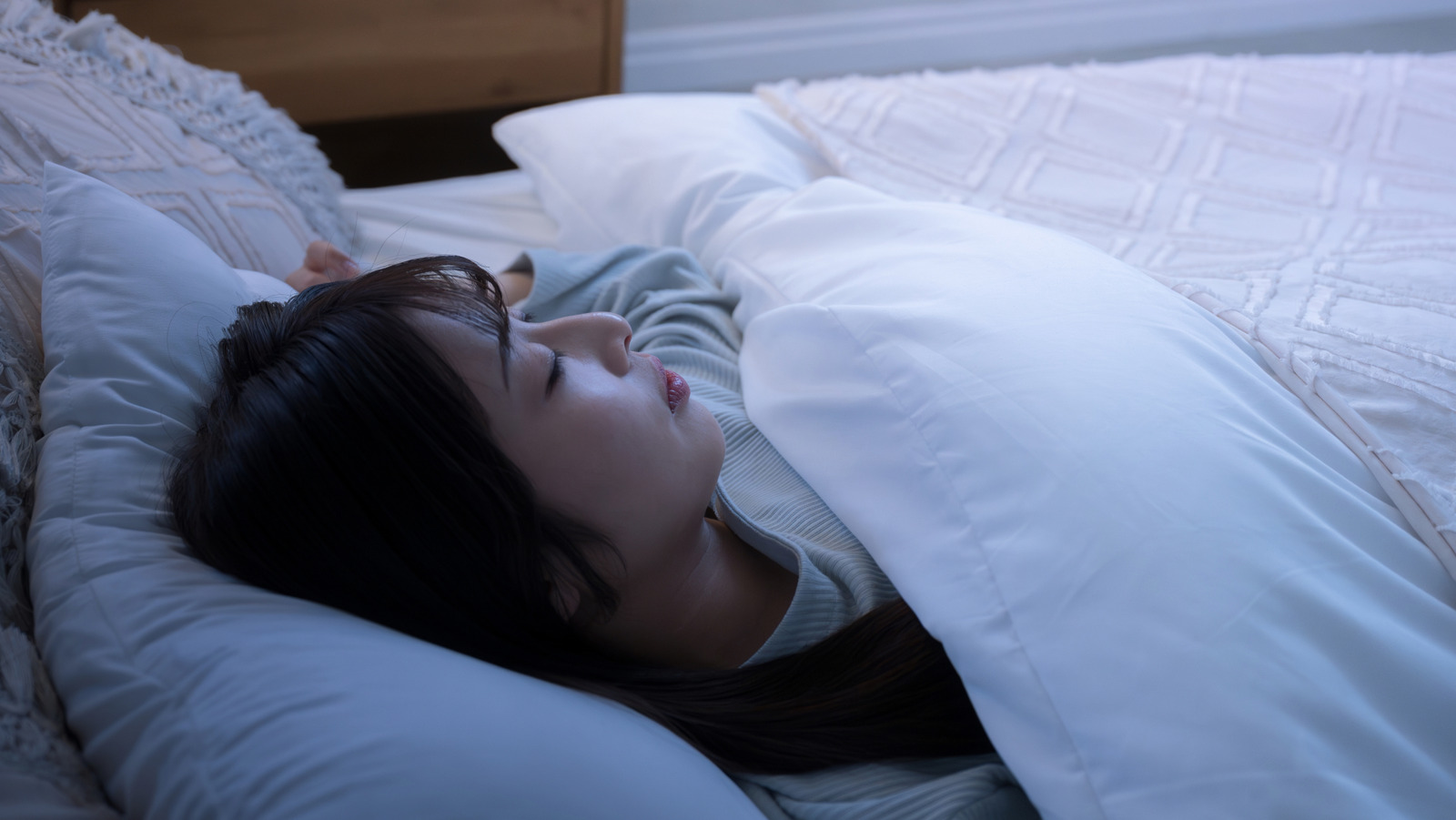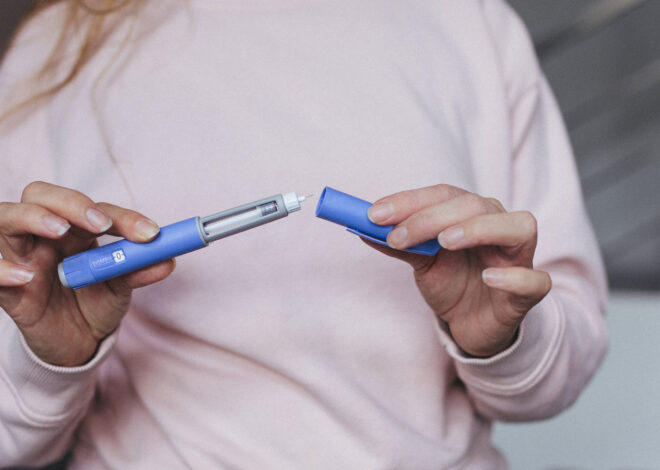
Strange Things That Can Happen To Your Body Right Before Falling Asleep – Health Digest
Sleep is something the majority of us look forward to. At the end of a long day (or a long night), there often is no better feeling than crawling under the covers, knowing that you have nowhere to be and nothing to do for the next eight hours or so. Unfortunately, a peaceful night’s rest isn’t always in the cards for everyone. According to the Centers for Disease Control and Prevention, 14.5% of adults had trouble falling asleep most days, or sometimes every day, over the course of a month.
And, even if you fall asleep, there’s a chance that you might do something strange or rather memorable while you’re out cold. Medical News Today reports that people tend to do everything from sleep talking and sleepwalking to acting out their dreams to even performing sexual acts during the night with no memory of it in the morning. Additionally, right before you fall asleep, a number of strange things can befall you without you even realizing it.
Hypnic jerks
Sometimes, when falling asleep, you might experience a sudden body twitch or jerking movement. At times, it can be minor and hardly noticeable; other times, it can be strong enough to wake you up entirely. According to a 2016 study published in Sleep Medicine, hypnic jerks can affect people of any age and at random. The study also showed that up to 70% of people experienced hypnic jerks right before falling asleep.
Researchers have not been able to pinpoint one specific cause for hypnic jerks (via the Sleep Foundation). Some researchers believe that it could be a startle reflex triggered by a misfire in the nerves in the brain stem. When you’re falling asleep, your brain could misinterpret the sensation as you actually falling, and causes a muscle twitch as a reaction. Other possible triggers include exercise before bed, stimulants such as caffeine or nicotine, or a lack of regular sleep and poor sleep habits.
Sleep paralysis
According to Cleveland Clinic, sleep paralysis can happen either right as you’re falling asleep or as you’re about to wake up, and is characterized by the feeling of being unable to move. People who experience sleep paralysis have reported not being able to move their arms or legs or even speak. They can also experience hallucinations, such as the feeling that they are not alone. The condition is fairly common, affecting approximately 3 out of 10 people worldwide. And while it’s nothing to be concerned about and does not pose a health risk, it can be very traumatizing for someone who does not realize what they’re experiencing or why.
While, in general, sleep paralysis is not cause for concern, WebMD does note that 10% of people suffer from recurrent sleep paralysis. For these people, there may be something more serious happening, such as narcolepsy, posttraumatic stress disorder (PTSD), or anxiety-related conditions. However, apart from these potential causes, there is no root cause for sleep paralysis, through stress and lack of sleep may also be factors.
Exploding head syndrome
It sounds a lot more dramatic than it actually is. No, your head doesn’t actually explode, but when you experience exploding head syndrome, you may hear loud sounds inside your head as you drift off to sleep (via Cleveland Clinic). It can sound like a loud bang or a crash and is only heard by you. It’s not a cause for concern, but it can most definitely be disruptive to your sleep, especially if it happens regularly.
According to the Sleep Foundation, exploding head syndrome, or EHS, has been around since the late 19th century, and seems to happen more to women than it does to men. Additionally, some people who have experienced EHS report feelings of tremendous fear, as well as other signs of anxiety, including difficulty breathing, sweating, and palpitations. As with many sleep disorders, there doesn’t seem to be one cause that people can pinpoint, although fatigue and stress seem to be two possible contributing factors.
Sleep hallucinations
Sleep Education describes the parasomnia known as sleep hallucinations as events that occur during sleep that are so real, it’s hard to determine whether you’re asleep or awake. These kinds of hallucinations are elaborate and detailed, where you may see people or animals that aren’t actually there. They can be brought on by a number of different circumstances, including drug use, prior alcohol use, insomnia, and mood disorders.
According to WebMD, sleep hallucinations are also known as hypnagogic hallucinations, and can occasionally happen in tandem with sleep paralysis, which can make the entire experience that much more alarming and terrifying. Additionally, it’s suggested that people who suffer from narcolepsy are more likely to experience sleep hallucinations. According to an excerpt from the sixth edition of Aminoff’s Neurology and General Medicine, 40% to 80% of patients who suffer from narcolepsy and cataplexy also experience hypnagogic hallucinations, ranging from feelings of floating or falling to an impending threat or the feeling of being suffocated.
A change in core body temperature
Heat loss in our hands and feet is an important factor in helping us fall asleep (via Sleep Station). Through this heat loss, the body produces melatonin, a hormone that helps to send signals through the body that tell us it’s time to sleep. But it’s not just about falling asleep. Your core body temperature continues to play a role in how well you sleep through the night. If you get too warm, for example, it can disrupt certain sleep stages such as REM.
The drop in temperature is due in part to your circadian rhythm (via Cleveland Clinic). The circadian rhythm is controlled by a cluster of cells in your brain called the suprachiasmatic nucleus. This internal clock responds to cues like light and temperature and manages your core body temperature as well. It helps to drop your temperature at night, which is part of what lets the body know that it’s time for you to sleep. Disturbing this cycle can impact your temperature regulation and your sleep quality.
Heartbeat awareness
Some people may experience heart palpitations at night before going to sleep (via Cleveland Clinic). These palpitations can make you keenly aware of your heartbeat, even to the point of it feeling like it’s beating right up in your throat. Although these palpitations can happen at any time, people often can become more aware of them at night. This is because you are free from other distractions, and your attention can zero in on things like your heartbeat.
Lying down in a quiet room, you may become aware of more internal sounds, especially your heartbeat (via Healthline). For people with a condition known as pulsatile tinnitus, this is a common experience. Pulsatile tinnitus is a condition where people can hear a whooshing or rhythmic pulsing in their ears that is in sync with their heartbeat. The lack of background noise at night can make this more noticeable, and it can be triggered by anything from increased blood flow near the ears or something potentially more serious, such as high blood pressure.
Microdreams
If you briefly nod off and then suddenly snap awake, this could be a sign of a phenomenon known as “microsleeping” (via Sleep.com). Microsleeping occurs when the body drifts off and loses consciousness for a short period, usually lasting anywhere from 10 to 15 seconds. During this brief time, you can experience various stages of light sleep, and even short periods of dreaming.
According to a 2017 study published in Neuroscience of Consciousness, researchers discuss the concept of microdreams, noting that they last less than a second and can appear as fleeting images or thoughts, usually snippets of daily experiences or surreal scenarios, as you’re dozing off. These microdreams aren’t fully-formed REM dreams, but rather momentary glimpses into dreamlike content. They are typically experienced as a flash of imagery, such as a scene, a person, or a sense of movement. They are often dismissed or forgotten quickly, but they can offer a window into how the mind operates prior to sleep.
Tingling or twitching limbs
Sometimes, people may experience an almost overwhelming urge to move their legs before sleeping, a condition known as restless legs syndrome (via Cleveland Clinic). This is a condition that can impact up to a tenth of the population and can also be marked by a feeling of throbbing, aching, itching, or crawling. Moving can offer at least some temporary relief, but these symptoms can significantly interfere with sleep quality and make it hard to fall asleep.
According to the Merck Manual, muscle jerks such as these are categorized as a condition known as myoclonus. They are categorized by sudden contractions of a muscle or muscle group, and often take the form of what is commonly referred to as a “sleep start,” a sudden twitch in your legs as you drift off to sleep. Most of the time, myoclonus is not cause for concern; occasionally, it could be a sign of a more serious condition such as epilepsy, liver failure, or side effects from certain medication. If you feel that these muscle jerks may be the result of something serious, you should consult your doctor immediately.
Sudden itch attacks
Also known as nocturnal pruritus, the sudden and at times overwhelming desire to scratch an itch before falling asleep can be very disruptive to your sleep, according to Cleveland Clinic. This condition can be made worse by some conditions, including eczema, psoriasis, and insect bites. It can also be triggered by a dip in cortisol levels at night. This drop in the anti-inflammatory hormone can heighten inflammation and skin sensitivity.
Your body’s circadian rhythm can influence nighttime itchiness (via Healthline). As night draws closer, skin temperature and blood flow increase, while moisture levels drop. This can make the skin feel warmer and more prone to irritation. At the same time, inflammatory cytokine release rises and corticosteroid production falls, which weakens the skin’s barrier and heightens sensitivity. The combination of warmer, dryer skin plus a deeper focus on bodily sensations can trigger nocturnal pruritus, making you itch more when you’re trying to get a good night’s sleep.


